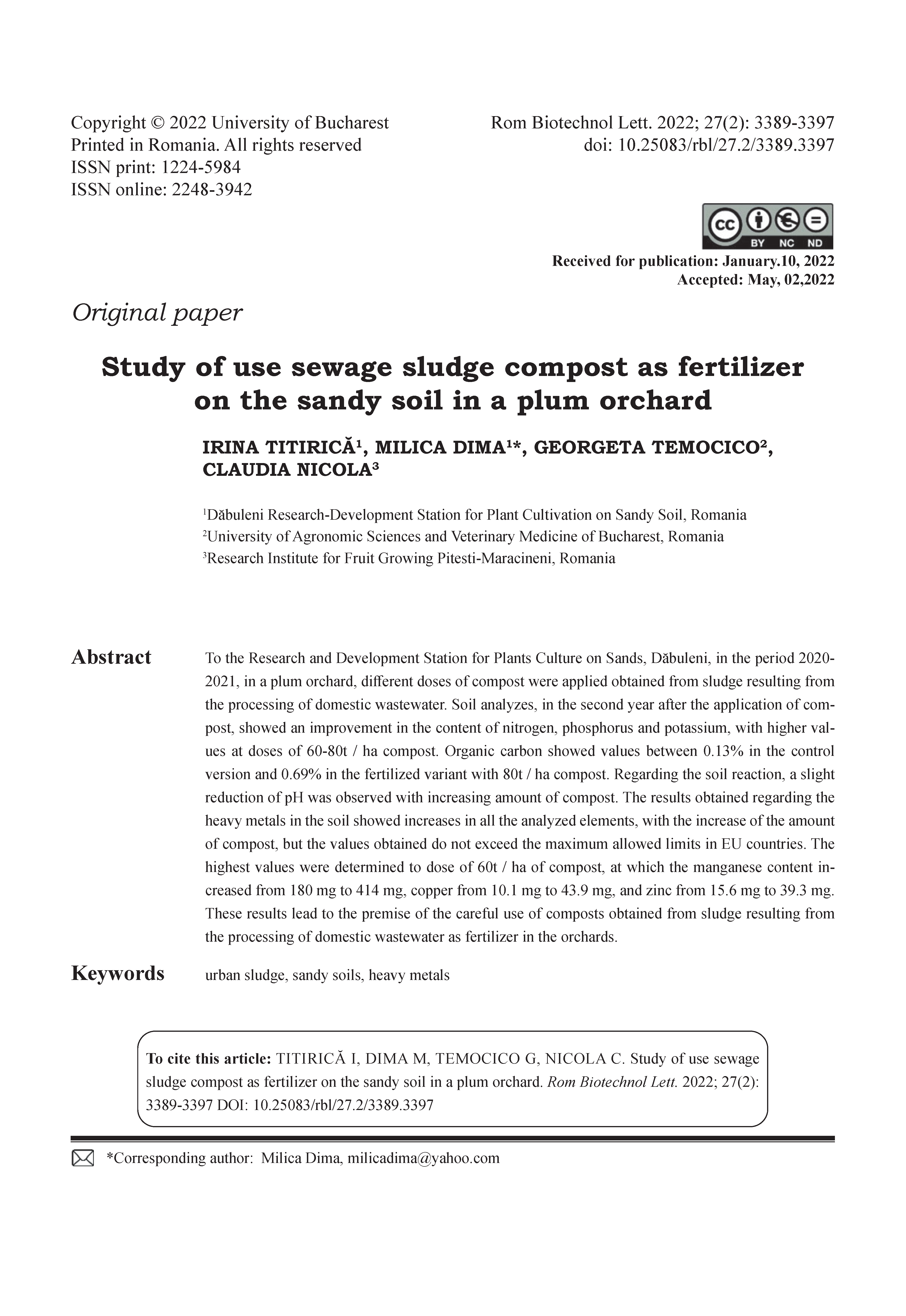Study of use sewage sludge compost as fertilizer on the sandy soil in a plum orchard
DOI:
https://doi.org/10.25083/rbl/27.2/3389.3397Cuvinte cheie:
urban sludge, sandy soils, heavy metalsRezumat
To the Research and Development Station for Plants Culture on Sands, Dabuleni, in the period 2020-2021, in a plum orchard, different doses of compost were applied obtained from sludge resulting from the processing of domestic wastewater. Soil analyzes, in the second year after the application of compost, showed an improvement in the content of nitrogen, phosphorus and potassium, with higher values at doses of 60-80t / ha compost. Organic carbon showed values between 0.13% in the control version and 0.69% in the fertilized variant with 80t / ha compost. Regarding the soil reaction, a slight reduction of pH was observed with increasing amount of compost. The results obtained regarding the heavy metals in the soil showed increases in all the analyzed elements, with the increase of the amount of compost, but the values obtained do not exceed the maximum allowed limits in EU countries. The highest values were determined to dose of 60t / ha of compost, at which the manganese content increased from 180 mg to 414 mg, copper from 10.1 mg to 43.9 mg, and zinc from 15.6 mg to 39.3 mg. These results lead to the premise of the careful use of composts obtained from sludge resulting from the processing of domestic wastewater as fertilizer in the orchards.




